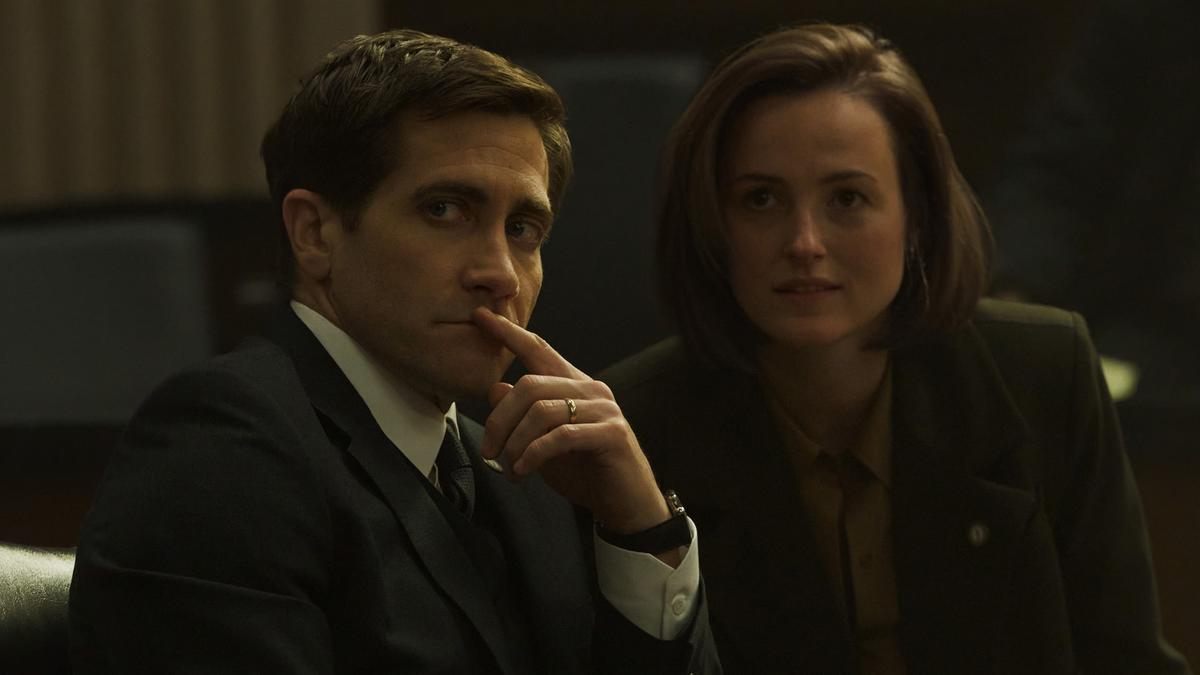
‘Presumed Innocent’ series review: Jake Gyllenhaal makes TV debut in slick, soulless reimagining
The Hindu
Scott Turow's debut novel, Presumed Innocent, adapted into a miniseries, explores themes of guilt, obsession, and betrayal in a legal thriller.
Scott Turow’s debut novel, Presumed Innocent (1987), tells the story of Kindle County prosecutor, Rožat “Rusty” Sabich who is accused of the murder of his colleague and former lover, Carolyn Polhemus. The tense legal thriller was as much a study of innocence and guilt as it was of marriage, fidelity, jealousy, rage and obsession.
The bestselling novel was made into a successful film, by Alan J. Pakula starring Harrison Ford as Rusty and Greta Scacchi as Carolyn. The movie was scandalous in its day for the graphic sex and the shocking ending. Ford, the action movie megastar, played against type. He apparently insisted on the buzz cut so that audience would not “expect the Harrison Ford they’ve seen before.”
When David E Kelley, the monarch of legal shows including LA Law and Ally McBeal, and more recently glossy prestige telly, such as Big Little Lies and A Man in Full, announced his adaptation of Presumed Innocent as a miniseries, hopes were circumspectly up. The caution owed to Kelley’s recent productions which were all shine and sans soul. And Kelley seems to follow suit with Presumed Innocent, which while shiny as a new button, is as engaging as watching paint dry.
Presumed Innocent is in first person and Rusty is the passive centre around which everything happens. Rusty is an unreliable narrator, before it became a thing. While following the main beats of the novel, a lot of it was pared down for the film.
With eight episodes to develop the characters and plot, Kelley could have fleshed out the details and used the time to get into Rusty’s mind — his feeling of being an outsider and his difficult relationship with his father, amongst others. Instead, Kelley’s Rusty, played with sweaty feverishness by Jake Gyllenhaal, is all about hectic action. The treadmill he pounds is inadvertently symbolic. Everything is projected, with no key into this family man who jeopardises everything for a woman, who also remains inscrutable.
While the series follows the main plot points of the novel, with Rusty being charged with the murder of his colleague and former mistress Carolyn (Renate Reinsve), there are major changes, mostly inexplicable. The underlying misogyny is supposedly addressed by gender flipping some characters. Nasty Nico Della Guardia (O-T Fagbenle) and Tommy Molto (Peter Sarsgaard) remain men. Judge Lyttle is now a woman (Noma Dumezweni) as is the detective helping Rusty, Alana Rodriguez (Nana Mensah). A pregnancy upends the original solution.
For some strange reason Sandy Stern, the Argentine lawyer who fought Rusty’s case is not on the scene. Raymond Horgan (Bill Camp), Rusty’s boss, fights the case with help from Mya (Gabby Beans), Stern’s associate. Barbara (Ruth Negga) Rusty’s cryptically forgiving wife, is a clingy cipher, who egged on by Raymond’s wife, Lorraine, (Elizabeth Marvel) indulges in some “revenge extra-marital sex” with Clifton (Sarunas J. Jackson), a bartender with a PhD in Art. “Painless” Kumagai (James Hiroyuki Liao), the medical examiner, is as tetchy as ever

More than 2.6 lakh village and ward volunteers in Andhra Pradesh, once celebrated as the government’s grassroots champions for their crucial role in implementing welfare schemes, are now in a dilemma after learning that their tenure has not been renewed after August 2023 even though they have been paid honoraria till June 2024. Disowned by both YSRCP, which was in power when they were appointed, and the current ruling TDP, which made a poll promise to double their pay, these former volunteers are ruing the day they signed up for the role which they don’t know if even still exists

















